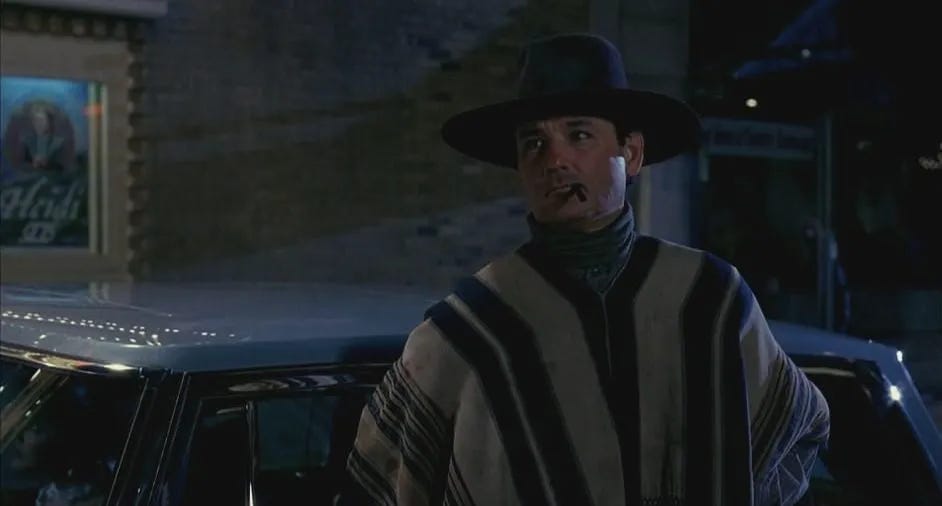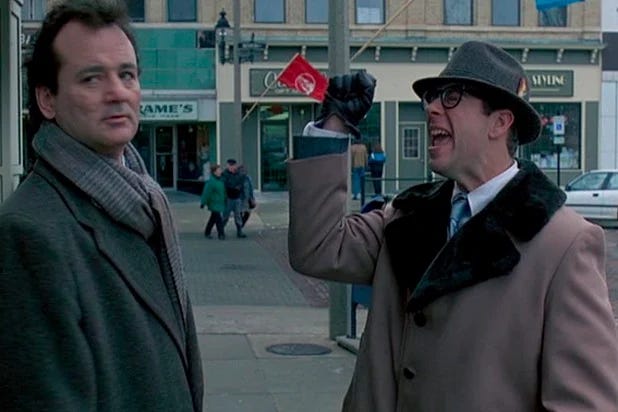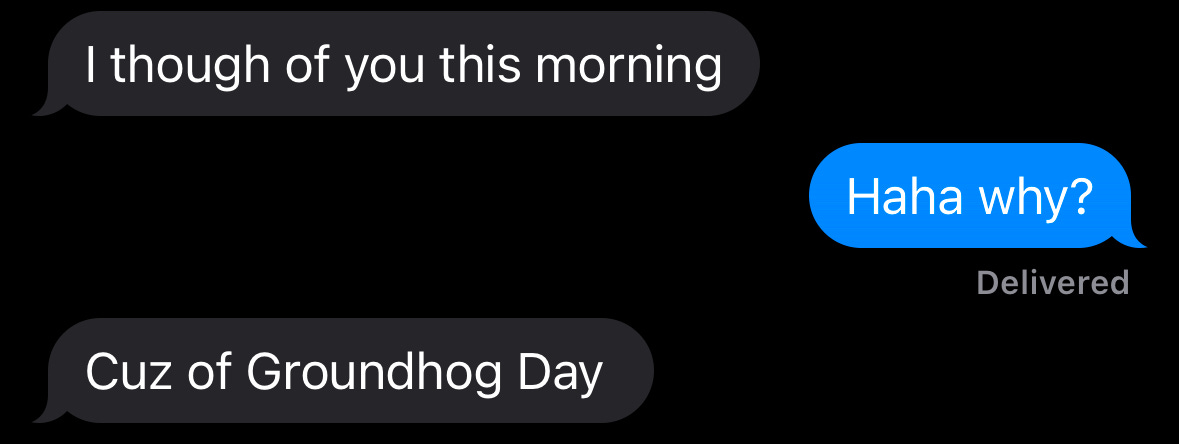Happy Groundhog Day, Again!
"In Groundhog Day, Bill Murray is condemned to repeat the same day over…and over…and over again. So, if that happens to any of us, we should be prepared." - Morning Brew
“Groundhog Day” is my favorite holiday because I love everything about the movie.
It's whimsical, sad, funny, and it's relatable: "None of us knows exactly how we got stuck here either."
I enjoy everything from time travel and Ned Ryerson's character to the interesting fact that Stephen Tobolowsky has ties to Radiohead. It makes perfect sense for someone like me to appreciate it as much as I do.
If I could, I would make it everyone's favorite cinematic holiday. (Happy Longer Winter!)
“Groundhog Day” isn't just about Bill-fucking-Murray and his complex antics, elaborate suicide attempts, and manipulating women into sleeping with him. It's a timeless classic that goes beyond its comedic surface, making more sense as you grow older and watch it again and again.
“Groundhog Day” is a movie about repetition.
We know, TM.
Okay, but hear me out.
The story of “Groundhog Day” actually starts in media res, focusing on the theme of repetition.
As the audience, we enter the narrative in the middle of a moment, forced to piece together Phil's past while the story progresses in a loop. Phil tracks the passage of time by reading one page of a book each day, reaching his low point when he realizes he has run out of books to read.
This nonlinear approach reflects how we experience memory. We often recall past events only when they become relevant. The narrative compresses time by starting in the middle of the action, eliminating a slow build-up, and allowing the backstory to unfold naturally through dialogue, flashbacks, or character actions.
This technique creates a sense of urgency, making time feel fluid and dynamic rather than strictly chronological, which enhances engagement and immersion.
It was a brilliant idea to start the movie with Phil, who was already in denial of himself.
You can't seem too unhinged early on.
Last Groundhog Day, I talked about experiencing one of the most challenging periods of my life. I went through the five stages of grief: denial, anger, bargaining, depression, and acceptance.
Like Phil, I found myself questioning my identity, career, and future.
It was awful.
But Phil's expositional narration was also removed from the film. We figured out his backstory along the way, and it was way more dreamier.
You can’t go backward or leap forward in time, even if you wanted to (not that I’m aware of yet.) And whether the original script was more sermonic and deprecating or not, we were at least given an optimistic theme.
So, how long does gradual personal transformation take?
I think unique, philosophical charm leaves the exact duration open to interpretation.
What would you do if you were stuck in an endless loop?
Happy Groundhog Day again!
TM






